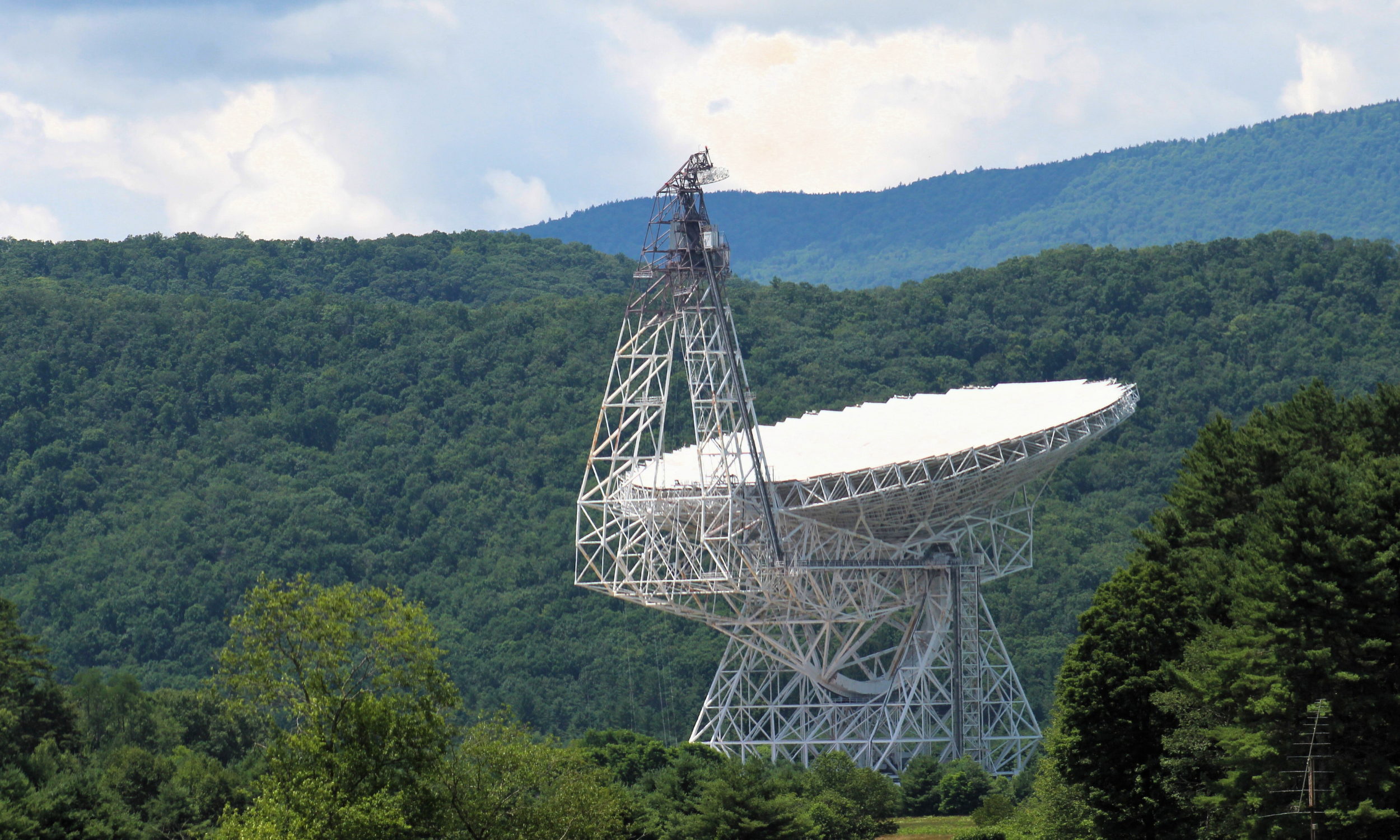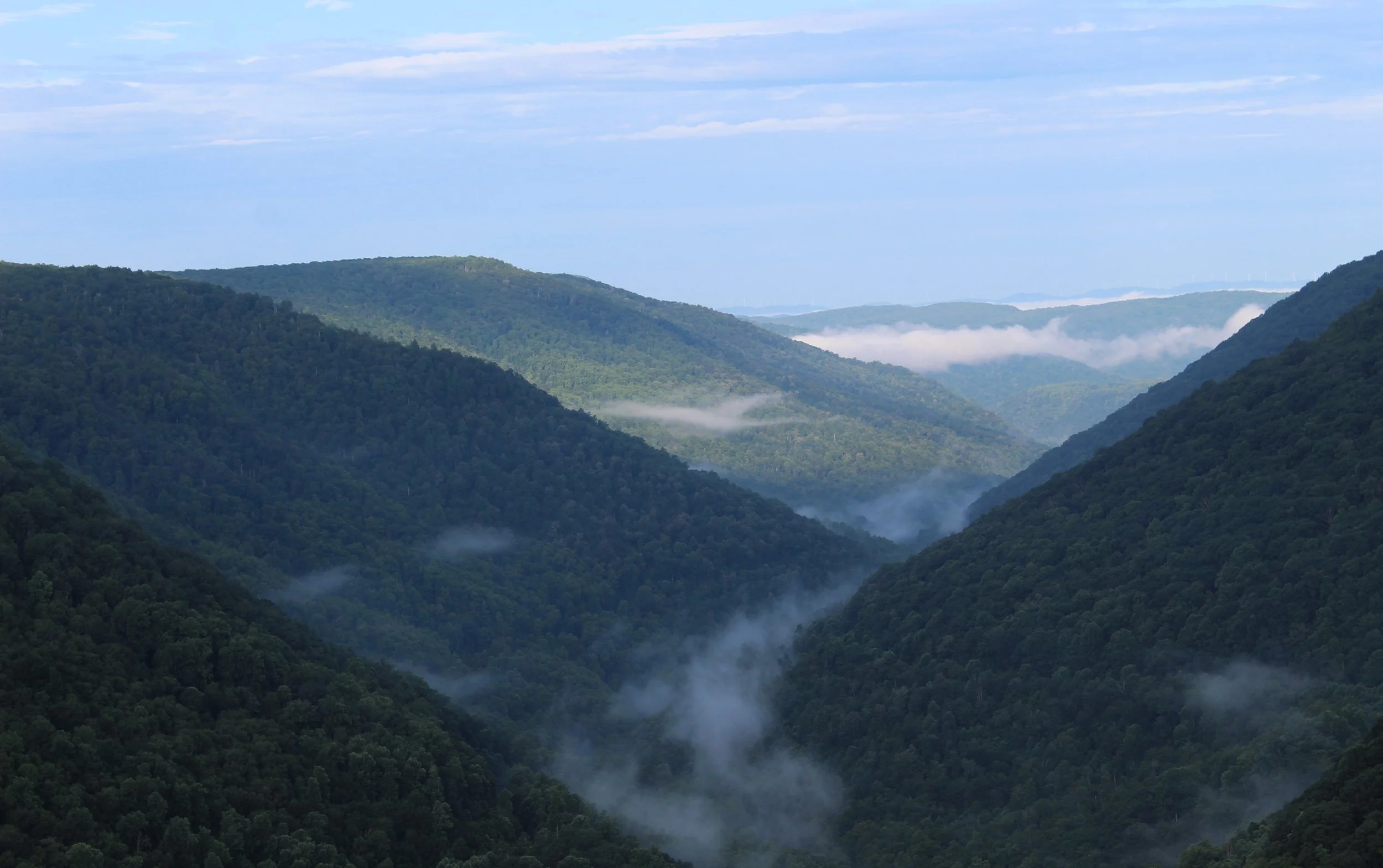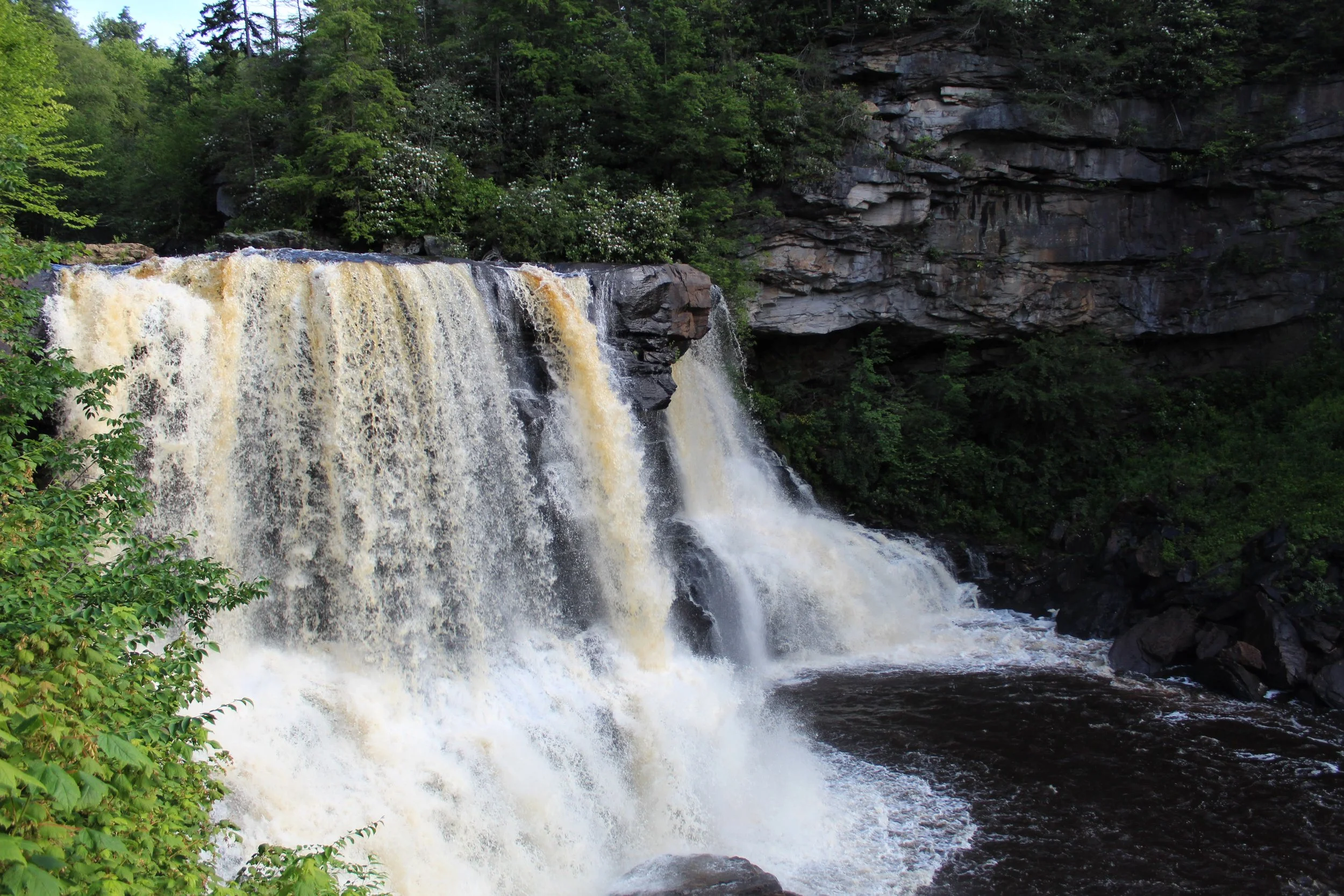Finding Connection in the Dead Zone
Green Bank, West Virginia, is officially in the middle of absolute nowhere. You lose cell phone service a good 50 miles before you get there. You'd better know how to read an old school map - you know, the printed kind - if you plan on getting where you’re going. There are no coffee shops, food venues, or restaurants anywhere along the way. It’s the perfect place to disconnect.
The region is intentionally cell phone signal-free, as part of the United States National Radio Quiet Zone, or “Dead Zone” - a region of Appalachia that has forgone modern communications conveniences in order to provide a protected space for communications research. One of the unique organizations operating out of the Dead Zone is the Greenbank Observatory, a research facility that listens to the faintest signals in the universe - signals that could be drowned out by even the quiet hum of a microwave or the ping of a text message. The massive telescope pictured here spans over two acres and is the world’s largest fully steerable radio telescope.
Ironically, it was in this place designated for literal “radio silence”, I found a strong connection.
Field Notes from the Dead Zone
Needing a place to unwind and mute the non-stop everything that currently dominates the public sector, I opted to spend some time out in the Dead Zone. During the day, I’d hike, climb, and paddle. At night, I’d open up my laptop and work on the half-dozen cyber-related publications and a new security project I’m currently working on.
The disruption in communications flow from the outside world into the little hollar in which my cabin was located provided such great clarity. I realized it had been a long time since I’d been somewhere that I could truly hear myself think. I marveled at the speed at which I could knock out 20,000 words and my ability to complete projects I’d been drudging through for weeks - where had this focus been all year? Modern life, with all its notifications and news cycles, has a way of leaving one’s head with a thousand browser tabs open. The Dead Zone cut all of that out by simply blocking the signals.
Not having the Internet meant I couldn’t just “Google” things when the urge struck. If I wanted to find out a good shortcut through the old mining camp, discover the best restaurants in the area, or check the morning conditions of the river, I had to ask a human.
Everywhere we went, I was talking to people. The locals were helpful and also shared a number of fascinating insights about the area - personal anecdotes that I never would have gotten from a Yelp review. They told jokes, funny stories, and asked questions about who I was and where my accent was from. Every information-seeking interaction was an opportunity to quickly make a new friend.
The final stretch of my trip included backpacking Dolly Sods - a high-altitude plateau in the Allegheny Mountains that’s renowned for its epic views. The area features thick forests of red spruce, sphagnum bogs, and heath barrens - ecosystems that are more typically found in northern Canada rather than the southern Appalachians. This rugged wilderness is fascinating.
Day 3 of life in the backwoods, I ran into a carload of consultants from Washington, D.C. I heard them long before I saw them on the trail, as their endless rants and raves about the recent shifts to the public sector were filling the otherwise songbird-accented air. They weren’t well-prepared (no map), so we chatted for a few minutes while I referenced my paper maps to help them find their way back to the parking area. The entire time we conversed, they complained and cursed. They didn’t ask any questions, they didn’t share any trail insights; they just b*tched the whole time.
Having been so far removed from all the stuff happening inside the beltway for weeks, I realized just how much I resented their negative intrusion. We were literally standing on top of the Eastern Continental Divide - one of the most beautiful places I’ve ever hiked - and were surrounded by bear, elk, and soaring bald eagles overhead. Endangered wildflowers that you can’t find anywhere else in the United States were blooming all around us. And these folks were so entrenched in the muck of clickbait, mis/disinformation, and responsibility-avoiding outrage that they couldn’t even see the beauty of the world all around them. It was sad.
Mountaintop Observations
As a Millennial, I have the distinct perspective of being the last generation that can remember a world before smartphones, social media, and all other internet-things. I grew up in a small community where we knew all our neighbors, never locked our doors, and always helped each other out when people were sick, there was storm damage, or someone died or had a baby. We didn’t have anything to rely on but each other, and as a result, we invested immensely in the world around us. The closest thing we got to virtual reality was the PG-13 Saturday afternoon matinee at the Tupelo Mall.
When I was in undergrad, the world changed. Social media became a thing. People carried Blackberries. Folks started meeting each other via online dating instead of risking it all on a really cheesy pick-up line in a pretty seedy bar five minutes to closing. I found most of the new technology intrusive. I liked analog - something in your face, something you can feel, something that’s real, something that moves, inspires, and changes you, not some dumbass meme written by an AI bot in another country.
Largely prompted by my concerns about how rapidly our world was changing in response to technology, I decided to study it. How was cyber impacting people? What was it doing to our communities, businesses, and nation? How had technology changed the way we connect with other humans?
The more I researched, the more disturbed and discouraged I became. Widespread technological usage patterns were decreasing our cognitive abilities, destroying relationships, and diminishing our mental well-being. People were lonely, depressed, anxious, and angry for reasons they couldn’t even tell you why. The more they used their phones, the more information they ingested, the more disconnected they became from each other and themselves. It’s been a disturbing phenomenon to witness.
Reflections on Connection
As I think about the experiences in the Dead Zone through the lens of the ongoing challenges technology presents to our modern society, identifying best practices seems like a good course of action. Technology isn’t going away, and people aren’t going to give up their phones. Our kids don’t have any connection to the world of “Sunday visiting” as I do. They think all the digital trash is normal - almost natural - and lack a strong connection to the physical world - one filled with unfiltered humans, untamed wilderness, and uncustomized experiences. I do worry that far too many humans have surrendered their humanity to the convenience of technology.
Re-entering civilization - a world of video calls, text messages, and emails - I took a moment to jot down a few rules of engagement for protecting our ability to establish connection:
See the people around you, talk to them, get to know them. Don’t just stare at your screens - our modern-day digital pacifier. Engage in the world in which you are living. Don’t bail on it to opt for some internet-facilitated fantasy life.
Actively seek out some level of discomfort. Get lost, get bored, be inconvenienced, and have an adventure! These small discomforts reawaken instincts, curiosity, and trust - all things that are so often numbed by digital convenience.
Protect your mind. “Garbage In, Garbage Out” applies to our cognition. Think about the content you are ingesting and be intentional about cultivating the good stuff. Limit unproductive noise, turn off notifications, and set a schedule for when, where, and how you engage media. Not every signal deserves reception.
Create space for the unknown. In the Dead Zone, they kill our intrusive signals in hopes of hearing something back from “up there” (you know, ET). Finding clarity requires stillness. Doing so mentally and environmentally helps you to actually hear yourself think.
Restore your own humanity - Tech has hollowed out our friendships, relationships, and sense of meaning. We’ve forgotten how to be humans with other humans. You can change that. Invite someone to lunch, bring cookies to a neighbor, start a book club, volunteer, send a letter. Do something real in the real world with real people.
It’s sad that technology - a connection tool - is being used to disconnect us from what matters most. User compliance is required for this to happen. You don’t have to submit to the algorithm that wants to dictate your Zombie-like life. You can intentionally pursue meaningful things that make a difference in people’s lives. But it’s up to you to take action.




